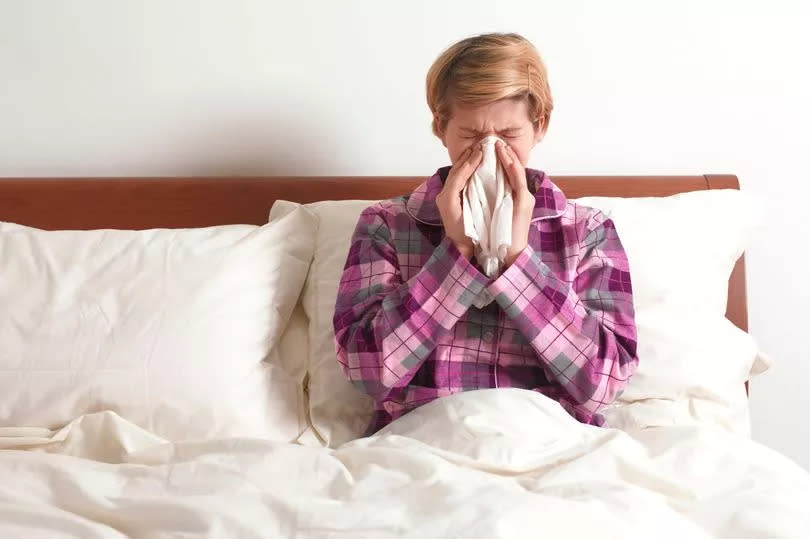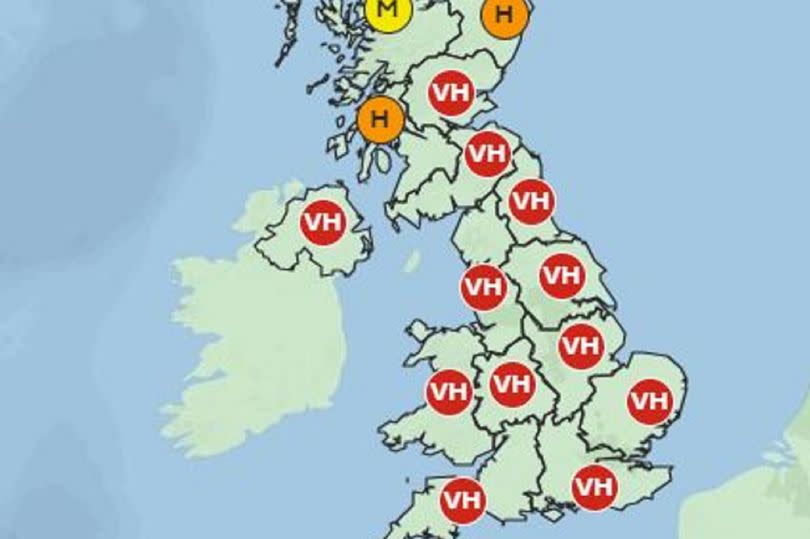Sleep expert's simple tip to help reduce symptoms of hay fever at night

The Met Office has warned that the UK can expect 'very high' pollen counts over the next few days - which is bad news for hay fever sufferers.
According to the latest forecast the pollen count is expected to be very high - the highest level it can be - until at least next Tuesday. The very high pollen count is being caused by grass and weed pollen.
A Met Office spokesperson said: "The fine, dry weather that we’re expecting for much of the country late in the weekend and into the start of next week is allowing pollen levels to reach Very High levels in our forecast, with grass pollen the main culprit.
READ MORE: Met Office issue warning as 'pollen bomb' hits UK causing misery for hay fever sufferers
“At this time of year, periods of warm and dry weather means that grass pollen can be released quite easily and cause some impacts for those who suffer with hay fever. The main advice during periods with Very High pollen levels is to avoid the pollen if you can, which can include changing clothes once you come inside, avoiding drying clothes outside and driving with windows closed where possible.
“Warm and dry conditions are likely to continue into the middle of next week, before more unsettled conditions could provide some relief from the Very High pollen levels for many.”
However high pollen counts can cause issues for people who suffer from hay fever - especially at night time when trying to get to sleep.
According to the NHS, the main hay fever symptoms include sneezing and coughing, a runny or blocked nose; itchy, red or watery eyes; itchy throat, mouth, nose and ears; loss of smell; pain around the sides of your head and your forehead; headache and feeling tired.

Symptoms tend to be worse between late March and September. Dr Deborah Lee, a sleep expert working with Get Laid Beds, said one simple tip when you go to bed can help alleviate some of the symptoms.
Dr Lee said: "While there are many different symptoms to hayfever, one of the most common is blocked sinuses. By sleeping with an extra pillow, your head will be elevated and can help decrease nasal congestion.”
Dr Lee also suggested a number of other things people can do to allergy-proof bedrooms during hayfever season. She said you should also shower before bed, keep windows closed in the house, keep pets out the bedrooms and wash bedding frequently.
Dr Lee added: "It's going to be difficult keeping pollen out of your bedroom completely, even after closing your window and washing your hair. Washing your bed linen more than normal will also help wash away the additional pollen that’s brought through during the week.”
According to the NHS, some simple ways to treat hay fever include putting petroleum jelly (such as Vaseline) around your nostrils to trap pollen.
Wraparound sunglasses, a mask or a wide-brimmed hat, can also stop pollen getting into your nose and eyes.

 Yahoo News
Yahoo News 
